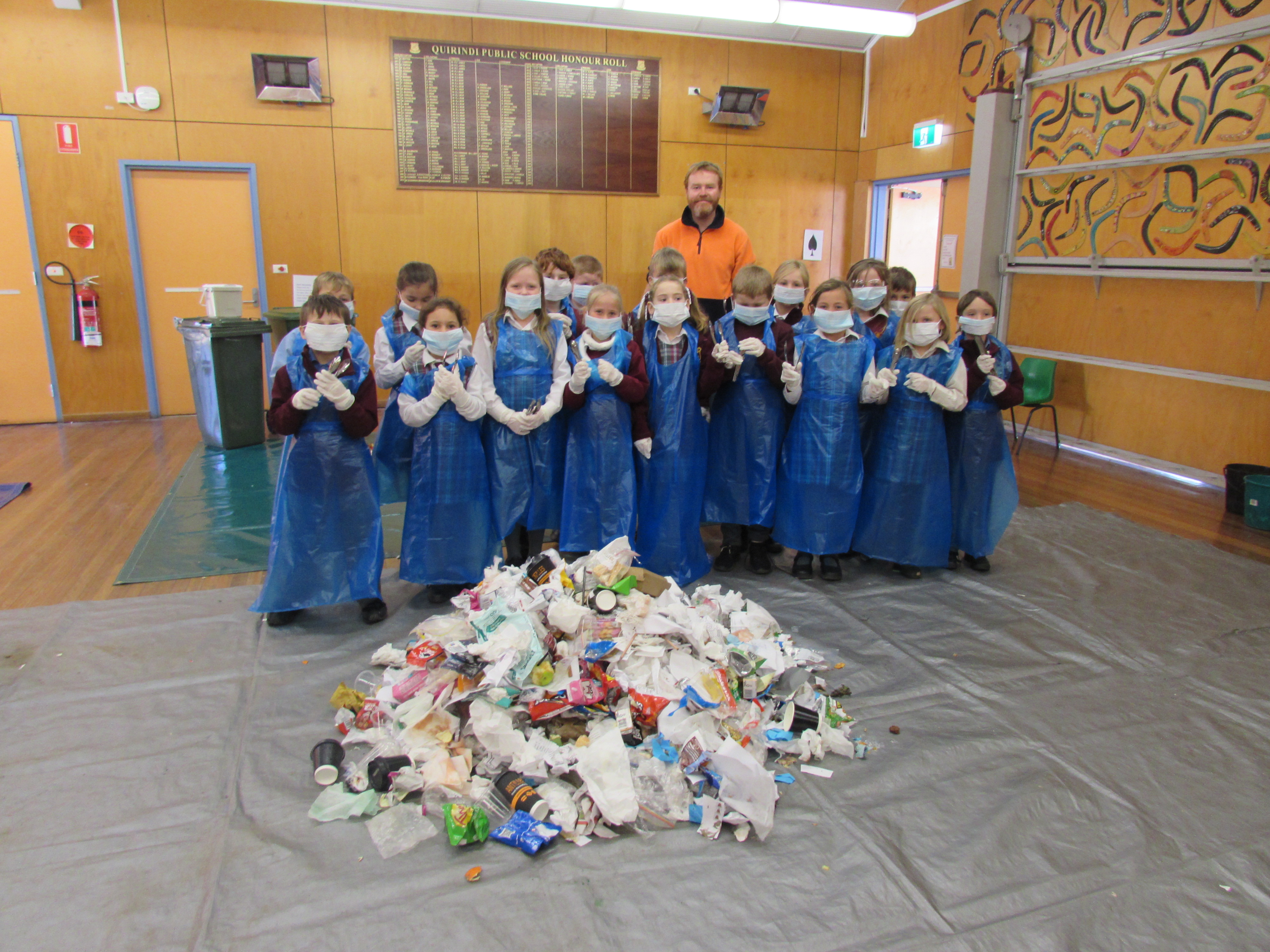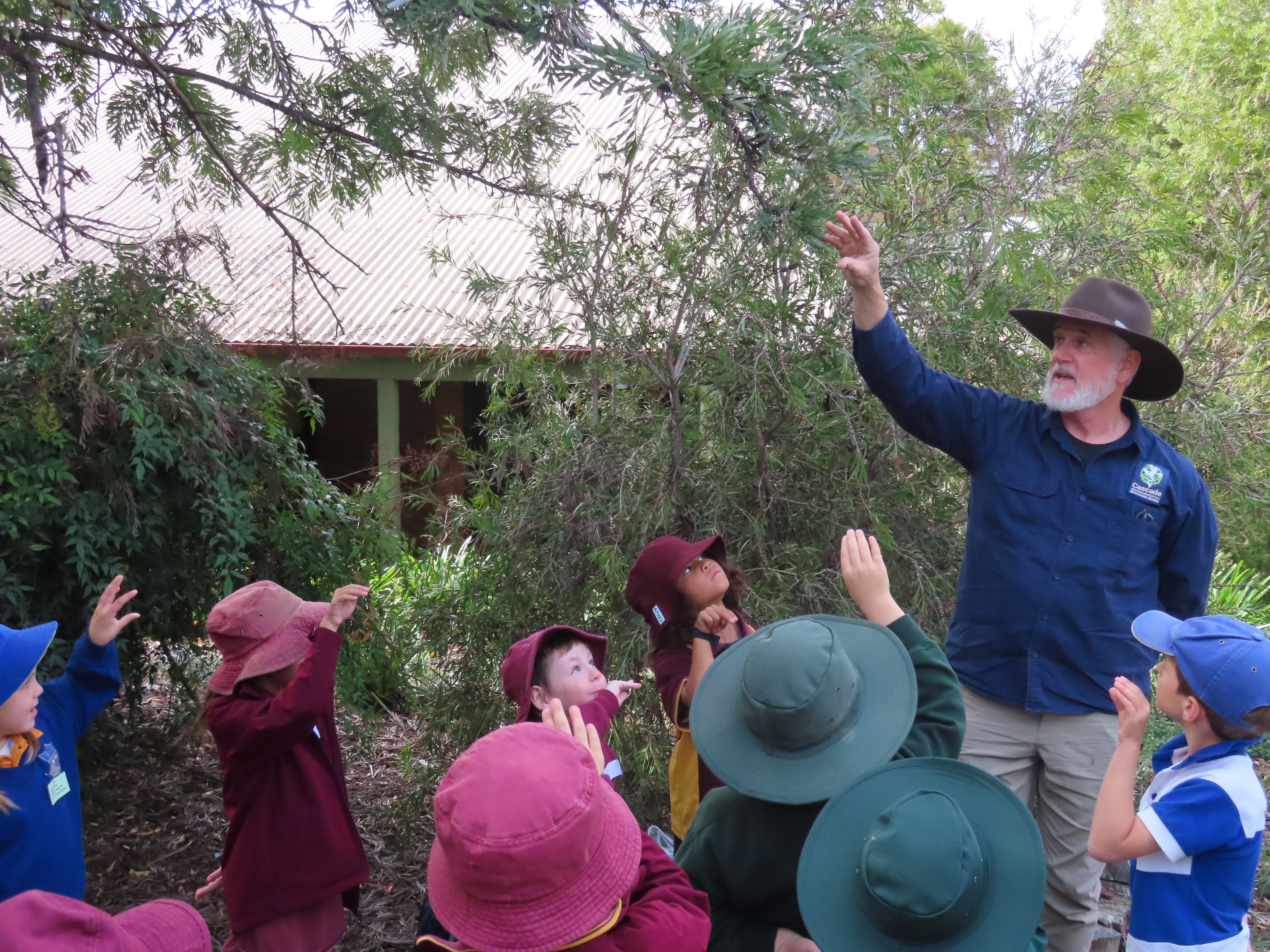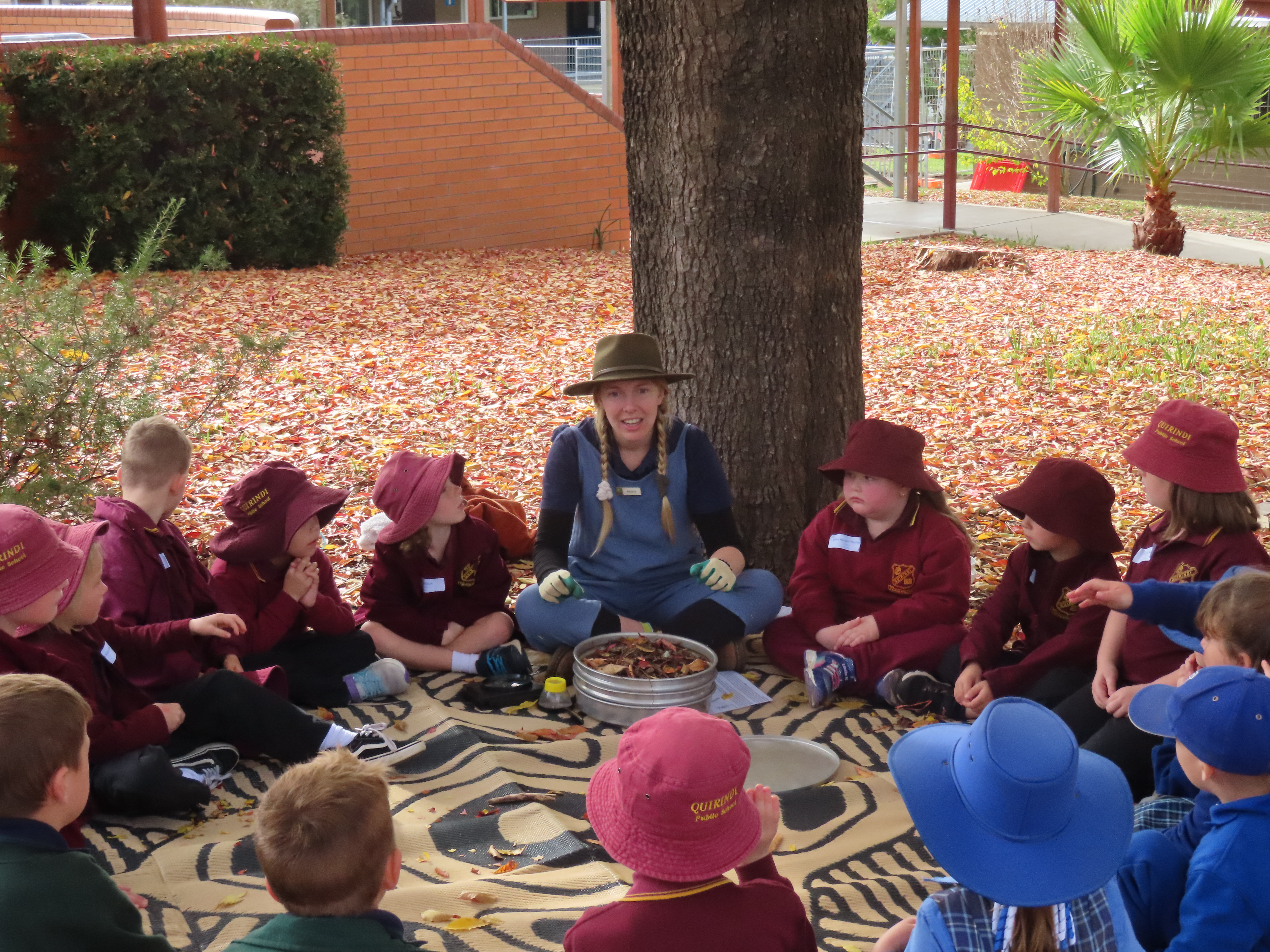Sustainability is increasingly becoming a critical focus for educational institutions worldwide and while both urban and regional schools are taking significant strides in this direction, regional schools face their own unique challenges on their journey towards a more sustainable future.
Quirindi Public School is nestled in hills of the picturesque Liverpool Plains, a rich agricultural area just southwest of Tamworth NSW. Quirindi PS joined Eco-Schools with a mission to go green and over the last 4 years have accomplished several significant sustainability projects including a school waste audit and a sustainable outreach day which hosted over 40 presenters and 500 students from 9 other schools! At the sustainable outreach day, organisations including Sydney Royal Botanical Society, Taronga Zoo, Bee Yourself Primary Industries Education Federation, NSW School Infrastructure Sustainability sector and twelve other environmental education centres ran eco-workshops where the kids’ planted trees, built bee hotels, learnt about native animals in the local area and much more. On their mission to execute such large projects, the school has of course encountered their fair share of challenges and obstacles, some due to their regional location and a few of which are still ongoing.
Setting up a comprehensive recycling system proved to be one of the most formidable challenges. The initial stages of the project involved conducting a school waste audit to determine which waste streams should be targeted and consulting with staff to decide which bins would work best for the classroom and playground, further complexity then arose due to the lack of recycling facilities in the region. The school’s LGA has a small population density which means that they don’t have access to all the facilities that their urban neighbours enjoy. As a result, there is also a knowledge gap in the community about how to recycle properly. The school currently relies on the good will of staff to travel up to an hour in several directions to recycle different types of materials.
The school initially struggled with encouraging staff to get on board with the sustainability agenda, not because they didn’t agree with it, but rather because teaching shortages across NSW have left teaching staff feeling overwhelmed, so asking them to integrate sustainability practices into their classrooms added to their workload. However, following several positive discussions around the benefits of sustainability in the classroom and across the school more broadly, the staff agreed to jump onboard. To assist with the workload, the non-teaching staff helped by taking on some of the more time-consuming tasks including the sorting of recycling. Extra volunteers were also recruited through local community engagement including the school newsletter and social media sites, as well as regular reports provided to the Parents & Citizens association at their meetings.
Funding to execute projects has perhaps been the school’s most difficult obstacle of all. Schools’ budgets are stretched, so grants are essential for implementation of sustainability projects. The cost to transport any equipment to the area also becomes a factor in decisions as freight rates are naturally higher to rural areas. Luckily, for their recycling project, the school were successful in obtaining a grant through NSW Sustainable Schools which enabled them to purchase all of the bin they needed as well as worm farms and compost tumblers. The school are always on the lookout and applying for grants, however they have noted that to have more funding for sustainability projects from the government would be of great benefit to them and no doubt to other rural schools treading a similar path.
Quirindi Public School exemplifies the resilience and determination inherent in regional schools striving for a greener future. Throughout their sustainability journey, despite the obstacles, they have witnessed the benefits of environmental education and the enthusiasm of students involved first-hand making it all worthwhile. Moving into the future, they plan to focus their attention on energy and community sustainability with both a local and global focus. We can’t wait to see what they achieve next!



